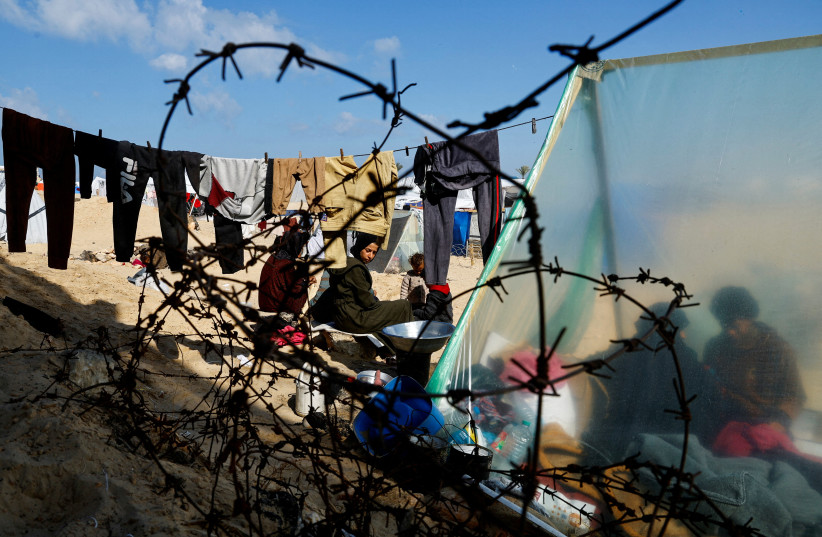Rafah has now become a symbol of the war in Gaza after four months in which Israel has defeated most of the Hamas battalions in Gaza. This is because it is now an objective for Israel’s potential next military moves.
At the same time, a lot of countries are speaking out with concern about a military operation there because of concerns about Palestinians who fled to Rafah.
After Israel’s prime minister vowed a Rafah operation, all eyes are on Israel to see if this will actually happen. Can an operation be avoided with a new hostage deal, and is there more to this than meets the eye?
Media in the Gulf is now expressing both concern and pragmatism over the potential operation. Western media is more alarmist, claiming 1.4 million Palestinians in Rafah have nowhere else to go.
A move that could lead to a crisis in the Middle East
This shows what is at stake in Rafah. First, it is the survival of Hamas; second, it also relates to Israel’s demand to get the hostages back and also, there could be a crisis in the region, with Iran, Hezbollah, or the West, depending on what happens in the next weeks.

There is likely another side to this. Hamas needs Rafah to survive. This is how Hamas controls humanitarian aid entering Gaza. Hamas has made extreme demands of Israel for a new pause in fighting.
It says it could release hostages over several months if Israel moves toward a ceasefire and an end to the war. In essence, Hamas wants Rafah as its main conduit to the international community, so it can control the aid that might enter during a ceasefire. Hamas wants to rebuild capabilities in Rafah and use it as a redoubt to extend its tentacles back throughout Gaza.
Hamas has benefited tremendously by controlling the border area over the last decade and a half. This is how it built up its arsenal and tunnels. It either smuggles in what it needs or finds ways to get things through the border that are dual use and can be used to build up the terror empire.
It appears that Hamas has exploited the fleeing civilians in Gaza to redirect them from the humanitarian zone in Mawasi to get them to move to Rafah’s outskirts.
Hamas is luring them there to use them as shields against any Israeli operation. Hamas is very good at manipulating international media in this respect. It has done this from the beginning, manipulating international organizations to claim there are various shortages in Gaza.
This is how Hamas thrives. In the past, Hamas would do this to get a ceasefire.
It is not clear how much regional countries back Hamas in its Rafah alarmism. However, it has succeeded in getting statements from the Gulf, particularly Saudi Arabia.
However, there are now more pragmatic reports in the Gulf. Arab News notes that Israel is working on a humanitarian corridor out of Rafah. Al-Arabiya reports that Hamas has threatened the hostage talks if Israel operates in Rafah. The National in the UAE reports that US, Egyptian, and Qatari mediators are heading to Cairo on Tuesday.
This follows meetings Riyadh hosted with Arab foreign ministers and the trip by Iran’s foreign minister to Lebanon, Syria, and Qatar. All eyes are on this potential conflagration in Rafah. Many pieces are being moved before such an event occurs.
It now is a question of whether Hamas has painted itself into a corner in Rafah, or whether Israel’s very public focus on this operation means it has painted itself into a corner.
